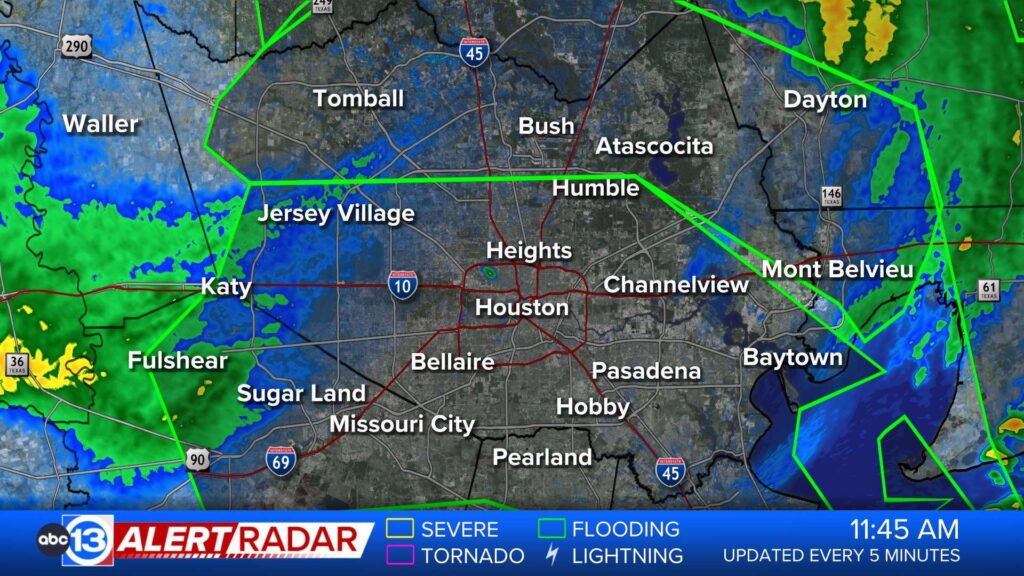As temperatures soar and weather becomes increasingly unpredictable, Houston’s independent senior living facilities are being put to the test, and the results are alarming. Unlike nursing homes or assisted living centers, these facilities do not face stringent oversight, leaving some of Houston’s most vulnerable residents at risk. Rosie Powell, a 71-year-old resident of Palisades of Inwood, has been without air conditioning in her apartment for nearly a month.
“I’m sitting here in the living room now with my little portable fan that I bought from Walmart,” she lamented one June afternoon as her thermostat read 87 degrees Fahrenheit. Powell moved to the senior living complex in North Houston a decade ago, attracted by the affordability and the sense of community. However, she soon discovered that the lack of regulatory oversight comes with severe consequences.
Independent living facilities, such as Palisades of Inwood, are not required to be storm-ready, unlike nursing homes and assisted living centers which must adhere to strict guidelines set by Texas Health and Human Services. This regulatory gap leaves residents like Powell and her neighbors vulnerable during extreme weather events.
Council Member Amy Peck expressed deep concerns about the lack of accountability in these facilities. “A lot of times there are a bunch of senior citizens living in an apartment complex with no kind of accountability for what could happen in a disaster situation or any other kind of situation,” she said. The recent derecho in May left many without power or AC for days, highlighting the dangerous gap in emergency preparedness.
Powell’s landlord provided portable AC units, but they are insufficient to combat Houston’s triple-digit summer heat. “I just try to brace myself and try to have enough food or water around here to take care of me,” Powell said, voicing her frustration and fear.
80+ mph wind gusts, accompanied by raging curtains of torrential rainfall, are raking through #Houston, Texas this morning as #Beryl’s powerful eyewall slides past the city. Over 2 million Texans are now without power, and rain-triggered flash floods are spreading through the… pic.twitter.com/ZypNGbK5PM
— Backpirch Weather (@BackpirchCrew) July 8, 2024
State Senator Molly Cook, who holds a Master’s in Public Health, emphasized the heightened risk for seniors. “Especially if it’s humid, that could be lethal to them,” Cook said. Seniors often live with chronic health issues and depend on electricity to power life-saving devices and maintain the proper temperature for medications.
While centers offering medical care are required to have backup generators and emergency supplies, independent living communities lack such mandates. This disparity can be life-threatening. Chuck Lalonde, Senior Vice President of Operations for Belmont Village Senior Living, noted that their strict guidelines ensure preparedness, but the cost of such facilities, up to $7,000 a month, is prohibitive for many seniors.
In stark contrast, independent living communities are more affordable, with places like Houston Heights Tower charging around $750 a month for a one-bedroom apartment. However, these facilities do not provide medical care. Linda Holder, Executive Director of The Housing Corporation, admitted their limitations. “We really can’t take care of people’s medical needs,” she said. They do stock extra food and water and provide cooling centers during power outages, but this is a far cry from the comprehensive care offered by regulated facilities.
The urgent need for regulatory changes is clear. Council Member Peck is exploring local policy changes to mandate minimum standards of care for independent living communities. “There needs to be some changes to our city ordinances and possibly the state law as well,” she asserted.
As Houston faces more extreme weather, the city cannot afford to leave its senior citizens in such perilous conditions. Immediate action is needed to ensure all senior living facilities are equipped to handle emergencies and provide a safe environment for their residents.

